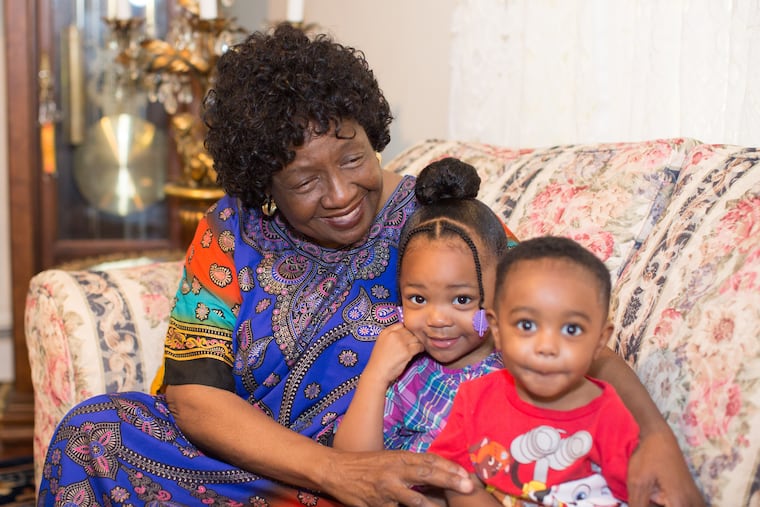Philadelphia reaches $2 million settlement with Catholic foster-care agency, aiming to prevent future challenges to LGBTQ rights
Philadelphia’s four-year legal battle with a Catholic foster care agency over its refusal to work with same-sex parents officially ended quietly this fall with the city agreeing to pay $2 million.

Philadelphia’s four-year legal battle with a Catholic foster care agency over its refusal to work with same-sex parents officially ended quietly this fall with the city agreeing to pay $2 million in legal fees and to renew the agency’s contract.
In June, the U.S. Supreme Court unanimously rejected Philadelphia’s decision to terminate a contract with Catholic Social Services over its refusal to consider same-sex married couples as potential foster parents. That decision sent the dispute back to the appellate court. But ultimately the city decided not to pursue further legal challenges and came to a resolution approved by the U.S. District Court on Oct. 1.
City officials told The Inquirer that by settling, they avoided opening up a narrow ruling to more sweeping restrictions.
“Certainly, this was not the outcome we wanted,” Deputy Mayor Cynthia Figueroa said. “But it was clear if we took this further down the road, we could actually open it up for radically changing other existing constitutional law.”
Under the agreement, the city paid the law firm that represented Catholic Social Services, Becket Law, $1.95 million in legal fees. An additional $56,000 was paid to Catholic Social Services. Figueroa said the city incurred minimal legal fees as it was represented in-house and by two law firms who worked pro bono for the City, Hogan Lovells and Kaplan Hecker & Fink LLP.
As part of the settlement agreement, the city wrote into CSS’s contract that it would be exempt from the citywide nondiscrimination ordinance, which prohibits city contractors from discriminating based on race, gender, or sexual orientation. The agency’s 2022 contract for foster care is $350,000. The agreement also stipulates that the city work with the women named in the suit, Sharonell Fulton and Toni Simms-Busch, both longtime foster parents with CSS.
“We are grateful that our ministries can continue serving those who count on us, especially foster children in need of a loving home,” said Ken Gavin, a spokesman for the Archdiocese of Philadelphia.
As a direct result of the Supreme Court case, the city also removed an exemption clause in its contracts, which was the crux of the highest court’s unanimous ruling against Philadelphia.
In its opinion, the Supreme Court did not say that the city’s nondiscrimination policy is itself unconstitutional, but rather that it was not applied neutrally since an exemption was not granted but was by contract permitted.
READ MORE >> Everything you need to know about Fulton v. The City of Philadelphia
The city says it has never granted an exemption, but Chief Justice John Roberts and the five other justices who joined his opinion concluded that the mere possibility meant the law couldn’t be applied neutrally without making individual judgment calls involving the circumstances of each case.
In a concurring opinion, Justice Samuel A. Alito Jr. blasted his colleagues for not tackling the central question of whether nondiscrimination policies could ever be constitutional if they infringe on religious rights.
He wrote that the decision, “might as well be written on dissolving paper sold in magic shops,” because to get around it the city could simply eliminate the clause in the contract that allowed for exemptions.
In its settlement agreement with the city, CSS agreed to post on its website a warning that it does not work with same-sex couples, and to provide referrals to agencies that do. In court, CSS mentioned several times that while it was the agency’s policy not to work with same-sex married couples it never had to turn one away.
Over the last four years, the foster care population has dropped from about 6,000 children to 4,160. Still, Figueroa said, the more qualified diverse homes, the better.
It’s estimated that about 30% of the foster care population nationwide is LGBTQ, though there’s been no survey of Philadelphia’s kids in city care. That makes representation of foster parents critical, said Stephanie Haynes, executive director of Philadelphia Family Pride, a nonprofit that supports LGBTQ families in the region.
“LGBTQ people are just as qualified to be foster parents as anyone else and there’s not any reason our families should be turned away, especially thinking about older kids and LGBTQ youth who may spend years in a group home before being placed with families,” Haynes said.
The case could have had greater impact had the justices ruled on the broader question of whether antidiscrimination policies like Philadelphia’s infringe on religious freedoms. It’s one of several cases that wrestle directly with the religious rights of child care agencies and LGBTQ rights.
Last week, the Supreme Court ordered New York’s top court to reconsider its ruling against the Catholic Diocese of Albany that challenged the state’s mandate that it cover abortions in its employee health insurance plans. In ordering the rehearing, the court referenced Fulton v. City of Philadelphia.
Figueroa said the four-year legal battle opened up conversations about how to better support LGBTQ youth, and in the case of one agency, Bethany Christian Services, led to a nationwide policy change. The agency now works with same-sex married couples.
“That we lost felt devastating but … when you really drill down, we didn’t lose where it was important,” Figueroa said. “We could have taken the bait and fought this further and actually put other things in jeopardy and I actually think we made the right decision in this moment.”